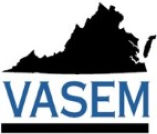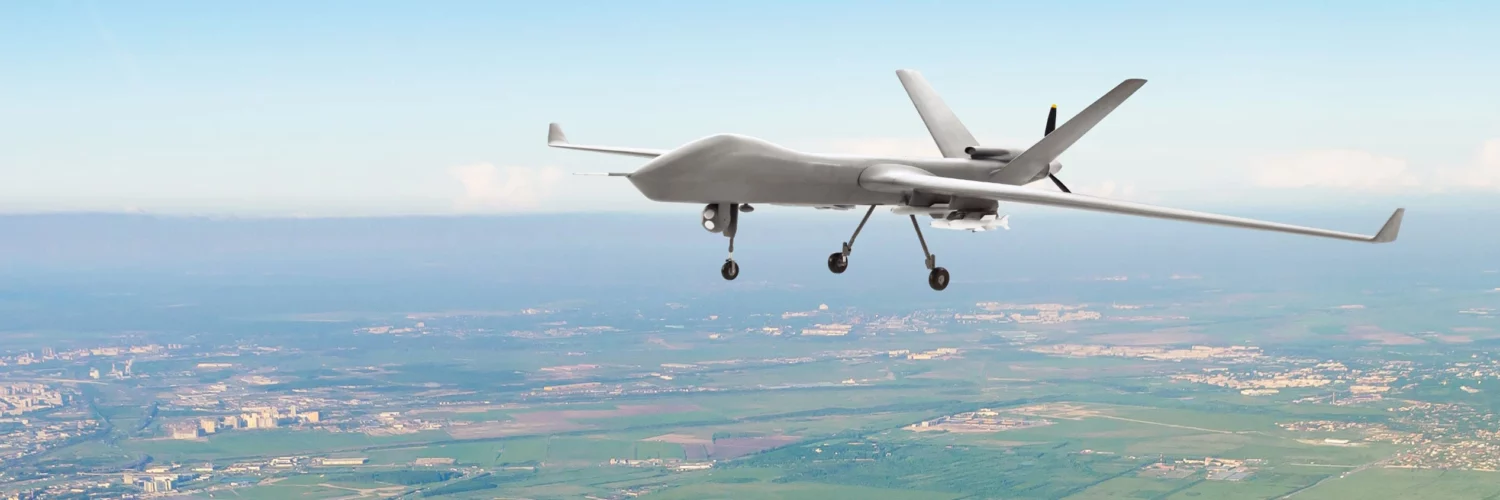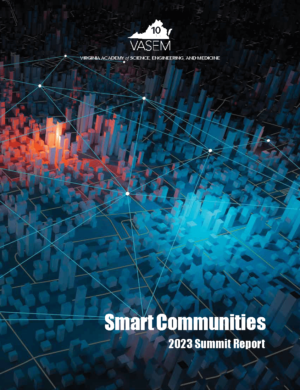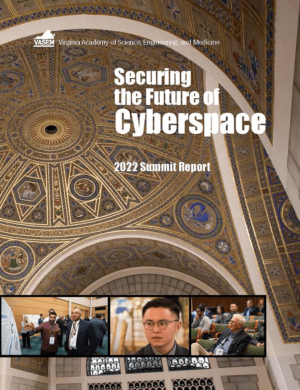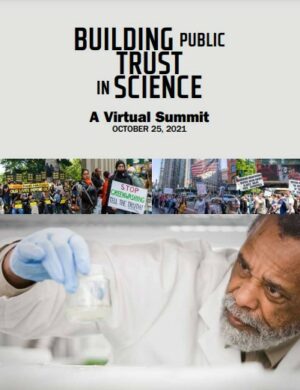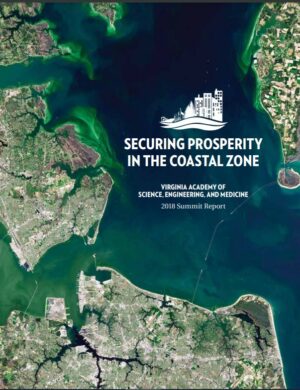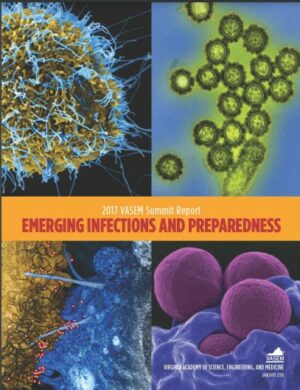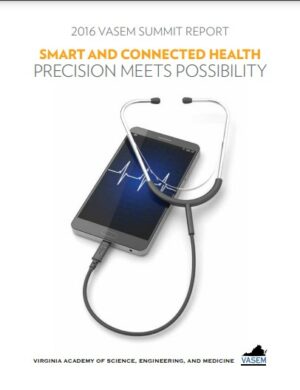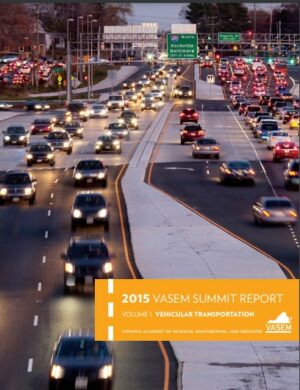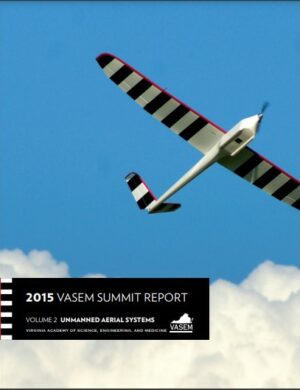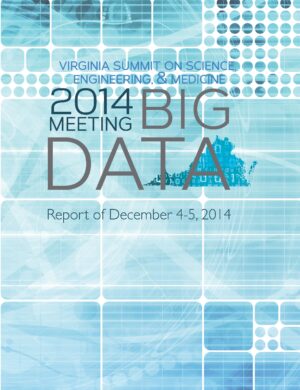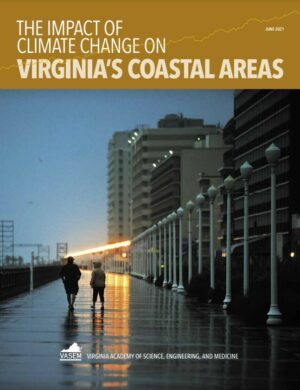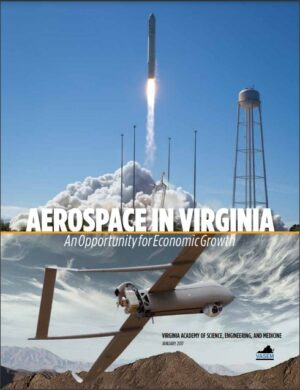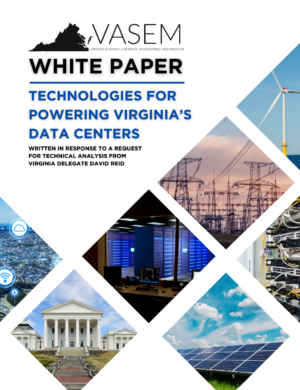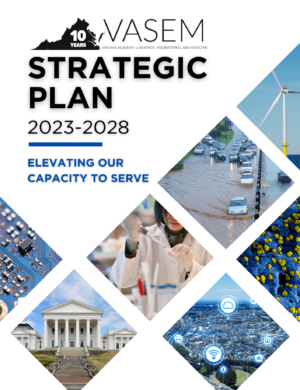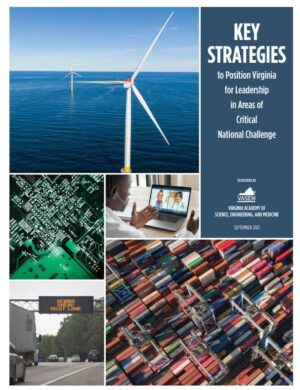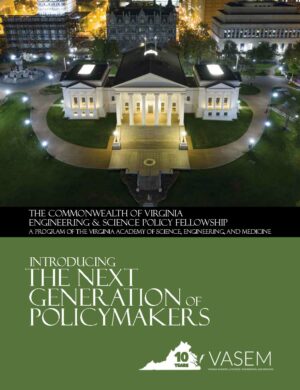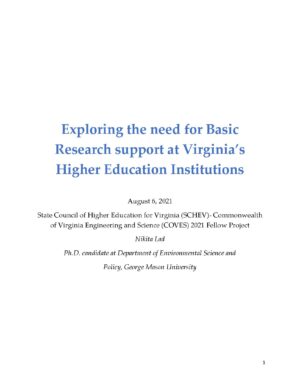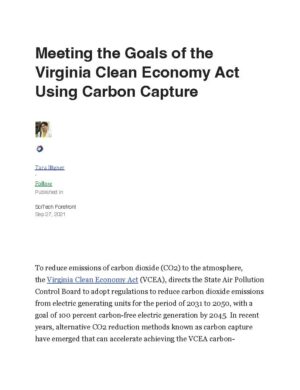Summit Reports
2023
The 2023 VASEM Summit brought together leaders and innovators from various scientific and engineering disciplines to discuss cutting-edge research and technological advancements, with a particular focus on smart community advancements. This annual event celebrated the 10th anniversary of VASEM and the fifth anniversary of the Smart Community Initiative led by the Virginia Innovation Partnership Corporation (VIPC). Over 200 thought leaders, entrepreneurs, and scholars participated, highlighting smart community engagement and opportunities for smart innovation across federal, commercial, university, and startup sectors. This collaboration underscored Virginia’s commitment to innovation growth and positioned the state as a leader in smart community implementation.
2022
With billions of interconnected devices online and billions more in the offing, the challenge of securing our home and business networks is more critical than ever. The more interconnected and extensive our computer networks become, the more vulnerable they are to cyberattack.
With this summit, the Virginia Academy teamed up with the Commonwealth Cyber Initiative to take a snapshot of measures that cybersecurity experts from academia, industry, and government are proposing to secure the future of our networks. Speakers approached the topic from a range of viewpoints, from that of individual users to government agencies like the Federal Communications Commission. We were honored that one of the founders of the Internet, Virginia Academy member Robert Kahn, agreed to deliver the keynote address.
2021
VASEM 2021 summit was different from previous gatherings in a number of ways. Held during the COVID quarantine, it was our first virtual summit. Equally important, it was the first summit that focused on social and cultural issues rather than on scientific, technical, or medical ones. But our topic was one that VASEM felt could not be more timely and more important.
The specific suggestions about restoring faith in science offered by our summit speakers were the result of hard-earned experience. Making personal connections with other people, they said, was paramount. While conceding that some people will continue to question evidence-based conclusions, the summit speakers all emphasized the importance of persistence.
2018
Virginia’s Coastal Zone is extraordinarily important to the state’s economy and home to many of Virginia’s oldest communities. It is threatened by sea-level rise, which is exacerbated by land subsidence in the Chesapeake Bay area. Climate change is also increasing the variability and intensity of weather. Summit presenters forecast that the coastal zone would be subject to more routine flooding as well as more violent and damaging storms.
At the same time, they noted that sea-level rise brings with it myriad opportunities for innovation in engineering and planning as well as for constructive legislative and policymaking. The net result could be enhanced economic growth across multiple sectors and movement towards an adaptive and thus more resilient coastal community.
2017
Perhaps the most prescient of VASEM’s summits was our 2017 edition on Emerging Infections and Preparedness. The summit featured a number of voices who would play important roles in the public response to the COVID pandemic including Lindsey Marr, an authority on airborne pathogen transmission, Rick Bright, former director of the U.S. Biomedical Advanced Research and Development Center, and Anthony Fauci, former director of the National Institute of Allergy and Infectious Diseases at the U.S. National Institutes of Health.
Speakers highlighted such topics as the increasing frequency of wildlife- and vector-borne diseases as humans infringe on formerly uninhabited areas, the effects of climate change on the ranges of these vectors, and the rapid spread of disease worldwide along global transportation networks.
2016
Sweeping new healthcare legislation and the growing promise of personalized medicine offers the promise of improved quality of care and progress in meeting the Triple Aim of better care, lower cost, and better outcomes for patients. The summit explored such issues for policymakers as the need to keep patient records secure as medical centers moved their data systems online and the challenges that Virginia entrepreneurs faced as they sought to transfer medical technology to the marketplace.
The summit also highlighted the pace and range of healthcare research and development underway in Virginia. For instance, presenters described inexpensive methods to create drugs on demand and the use of smartphones for diagnostics and monitoring.
2015
The 2015 VASEM summit was unique in covering two distinct but interrelated topics, vehicular transportation and unmanned aerial systems (UAS). During the morning transportation sessions, speakers discussed traffic congestion and examined the development of connected automated vehicles and discussed the need to transition to sustainable fuels.
During the UAS portion of the summit, speakers shared insights gained from creating a national UAS training and certification center at Sinclair College in Dayton, Ohio. They also highlighted the vulnerability of UAS to hackers and the steps needed to protect them from cyber threats. And they reviewed the impact of federal regulations on the UAS industry and the effectiveness of incentives for UAS research and development.
2015
The 2015 VASEM summit was unique in covering two distinct but interrelated topics, vehicular transportation and unmanned aerial systems (UAS). During the morning transportation sessions, speakers discussed traffic congestion and examined the development of connected automated vehicles and discussed the need to transition to sustainable fuels.
During the UAS portion of the summit, speakers shared insights gained from creating a national UAS training and certification center at Sinclair College in Dayton, Ohio. They also highlighted the vulnerability of UAS to hackers and the steps needed to protect them from cyber threats. And they reviewed the impact of federal regulations on the UAS industry and the effectiveness of incentives for UAS research and development.
2014
VASEM organized a summit on Big Data, attracting such authorities as Vint Cerf, co-inventor of the TCP/IP data packet interconnection suite, to discuss ways to use these data for society’s advantage. The presenters stressed that ever-growing flows of data from every sector of society could potentially lead to scientific discovery, technological innovation, economic growth, and improvements of personal and public health. But they also acknowledged that data flows of this diversity and magnitude were new and carried with them potential downsides.
The summit featured special sessions on the projected effect of big data on technology and industry, social science and policymaking, and health and medicine. It concluded with a session summarized the opportunities and challenges that big data posed for the citizens of the Commonwealth.
Studies
JCOTS asked VASEM to study the “safety, quality of life, and economic consequences of weather and climate-related events on coastal areas in Virginia.” After conducting its investigations, the expert committee found that climate change will have an increasingly disruptive effect on people living in Virginia’s coastal areas during the 21st century—and that these disruptions will have repercussions not just on the coasts but throughout the Commonwealth. An important finding of the report was that the consequences of these changes will be very different for rural and urban areas.
The expert committee issued several recommendations that included creating a state-wide body to coordinate and support critical data collection and technology transfer across the Commonwealth.
At the request of JCOTs, the Virginia Academy undertook a study of the aerospace industry in Virginia. After holding a series of all-day sessions and interviews with a score of stakeholders, the expert committee identified two growth areas— commercial space and unmanned aerial systems (UAS)—that held high promise for Virginia.
The expert committee found that these areas were among the fastest-growing segments of the aerospace industry, generating thousands of well-paying jobs, both directly and indirectly, and producing substantial growth for states encouraging their development. They determined that Virginia had compelling assets in both commercial space and UAS that could position it for leadership in these areas and made a series of policy recommendations to accelerate the development of these industries in the Commonwealth.
White Papers
In July 2024, David Reid, delegate from Loudoun County, asked the Virginia Academy of Science, Engineering, and Medicine (VASEM) to provide “brief, unbiased, nonvested-interest scientific and engineering assessments” of a series technologies being proposed to preserve Loudon County’s place as the preeminent location for data centers in the world. Northern Virginia, the single largest data center market anywhere by total power consumed.1 houses almost half of the data centers in the United States, and Loudon County, with over 230 data centers, is at its epicenter.
A principal challenge facing Loudoun County is sourcing the energy needed to support the construction of a new generation of data centers with the capacity to supply the computational power required by artificial intelligence and other uses.
Strategic Assessments
The Virginia Academy’s record of accomplishment over the past 10 years has place it in an ideal position to reflect on its record. Now is the time to evaluate our efforts, expand on our successes, and pursue initiatives in areas where we have yet to realize our full potential. Our strategic plan is our roadmap for moving forward over the next five years.
VASEM has not limited itself to projects proposed by other sources. In 2021, we took the initiative to develop a key strategy document, identifying five promising areas, such as sustainable energy production and semiconductors, in which the Commonwealth has the fundamental resources and expertise to achieve national prominence. We are currently in the process of updating and reissuing our report.
COVES Policy Fellowship Yearbook
Each year, we highlight the contributions of our latest COVES cohort and the achievements of COVES graduates who have gone on to careers in public policy. The publication of this yearbook is also an occasion to thank the growing number of government agencies, legislative offices, and nonprofits who host our fellows as well as the sponsors of the program.
The fellowship program has been carefully designed to ensure that both fellows and host offices gain maximum benefit from the experience. It is modeled after successful programs developed by such organizations as the National Academies of Sciences, Engineering, and Medicine and the American Association for the Advancement of Science.
Representative COVES Research Reports
This project was undertaken to solicit perspectives from the Commonwealth’s constituents’ regarding basic research (BR) performed at public universities in Virginia as the State Council of Higher Education for Virginia (SCHEV) was trying to explore the evolution of any current gaps and the potential need for state policy and/or legislation regarding public funding of BR at Virginia’s universities.
To reduce emissions of carbon dioxide (CO2) to the atmosphere, the Virginia Clean Economy Act (VCEA), directs the State Air Pollution Control Board to adopt regulations to reduce carbon dioxide emissions from electric generating units for the period of 2031 to 2050, with a goal of 100 percent carbon-free electric generation by 2045. In recent years, alternative CO2 reduction methods known as carbon capture have emerged that can accelerate achieving the VCEA carbon-reduction goals.
